Are you looking for guidance on how to improve your dietary habits for better health? In this article, we'll explore essential tips tailored to your individual needs, ensuring you make informed choices that can enhance your well-being. From understanding the importance of balanced nutrition to discovering delicious, healthy recipes, we've got you covered. So, let's dive in and embark on this journey towards a healthier youâread on to learn more!

Personalization and patient-specific information
Personalized dietary advice plays a vital role in managing individual health conditions and improving overall well-being. Tailoring recommendations based on specific health issues, such as diabetes, hypertension, or food allergies, ensures effective dietary management. For instance, a patient with diabetes may require guidance on carbohydrate counting and choosing low glycemic index foods, whereas someone with hypertension might benefit from a reduced sodium diet rich in potassium-fortified foods. Incorporating personal preferences and cultural considerations, like traditional recipes or favorite foods, enhances adherence to dietary plans. Regular monitoring of dietary habits, potential reactions, and understanding the nutritional composition of food items through resources such as the USDA FoodData Central can strengthen the patient's commitment to healthier food choices.
Clear dietary guidelines and recommendations
A well-balanced diet plays a crucial role in the overall health and recovery of patients. Essential nutrients should include proteins (such as lean meats, legumes, and nuts) for tissue repair, carbohydrates (whole grains and vegetables) for energy, and healthy fats (avocado and olive oil) for heart health. Adequate hydration with water (aim for at least 2 liters daily unless otherwise directed) is vital for metabolic processes and digestion. Monitor sodium intake, especially for patients with hypertension, aiming for less than 2,300 mg per day. Include fiber-rich foods (fruits, vegetables, and whole grains) to promote digestive health. Specific dietary restrictions or modifications may be necessary for conditions such as diabetes (monitoring carbohydrate intake) or renal disease (limiting protein and potassium). Regular meal timing (consistent intervals of 4-6 hours) supports metabolic stability and energy levels. Always consult healthcare professionals for personalized advice based on medical history, current medications, and individual health conditions.
Health condition relevance and considerations
Patients with health conditions such as diabetes, hypertension, or cardiovascular disease require tailored dietary advice to manage their symptoms effectively. For diabetes, it is essential to monitor carbohydrate intake, focusing on low glycemic index foods like whole grains and non-starchy vegetables, which help regulate blood sugar levels. Hypertension patients should limit sodium intake (ideally below 2,300 mg per day) and incorporate potassium-rich foods like bananas and spinach, which can help lower blood pressure. For cardiovascular health, adopting a Mediterranean diet rich in healthy fats (like olive oil and fatty fish), fruits, and vegetables is recommended to support heart health. Understanding individual health goals and challenges is critical for developing a sustainable, effective dietary plan that promotes overall well-being.
Motivational and supportive language
Creating a sustainable dietary change can be a challenging but rewarding journey for your health. Embracing a balanced diet that includes an array of fruits, vegetables, whole grains, and lean proteins can significantly enhance your well-being. Engaging in mindful eating--taking the time to savor each bite--can transform your meals into nourishing experiences. Setting achievable goals, such as incorporating one new vegetable each week or replacing sweetened beverages with water, can lead to meaningful improvements over time. Celebrating small victories along the way, like successfully meal prepping for a busy week, will keep you motivated. Remember, this journey is about progress, not perfection. Always seek support from friends, family, or professional guidance as needed; you don't have to do this alone. Your commitment to your health is commendable and can inspire those around you to join you on this path to wellness.
Follow-up and contact information
Patients seeking dietary advice after medical consultations should adhere to specific guidelines for optimal nutritional health. Comprehensive dietary modifications often involve increasing fiber intake through whole grains, fruits, and vegetables, while reducing saturated fats found in processed foods and red meats. Monitoring caloric intake is essential, particularly for those managing conditions like diabetes or obesity, where meal planning with specific carbohydrate counts can improve glycemic control. Regular follow-up appointments with a registered dietitian (RD), ideally every 4-6 weeks, can ensure accountability and progress monitoring. Contact information for healthcare providers, including direct phone numbers and email addresses, should be readily available for inquiries related to dietary plans and any necessary adjustments.
Letter Template For Patient Dietary Advice Samples
Letter template of personalized dietary recommendations for health improvement.
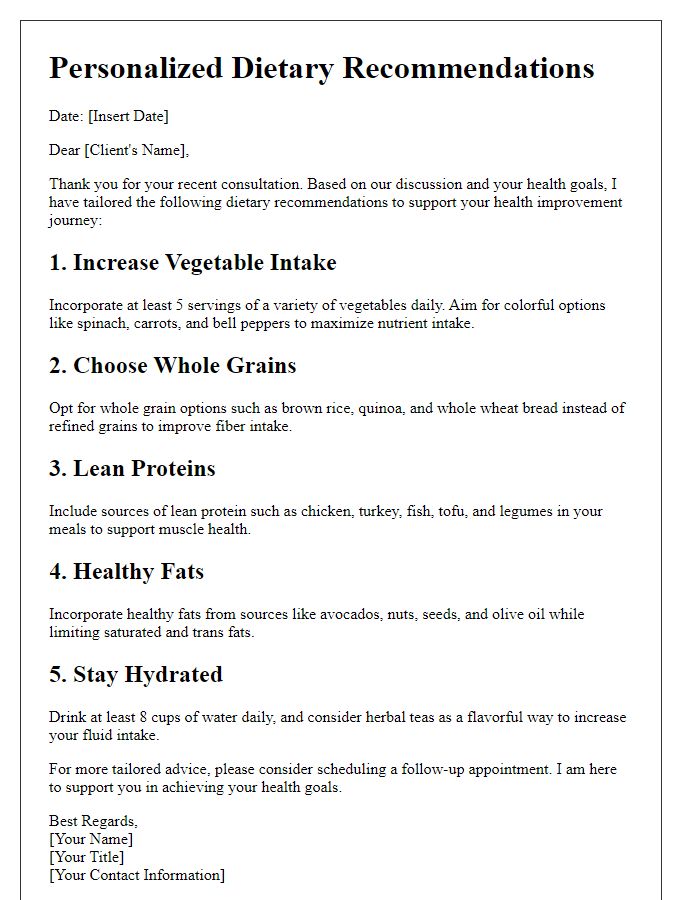
Letter template of nutrition guidance for managing specific health conditions.
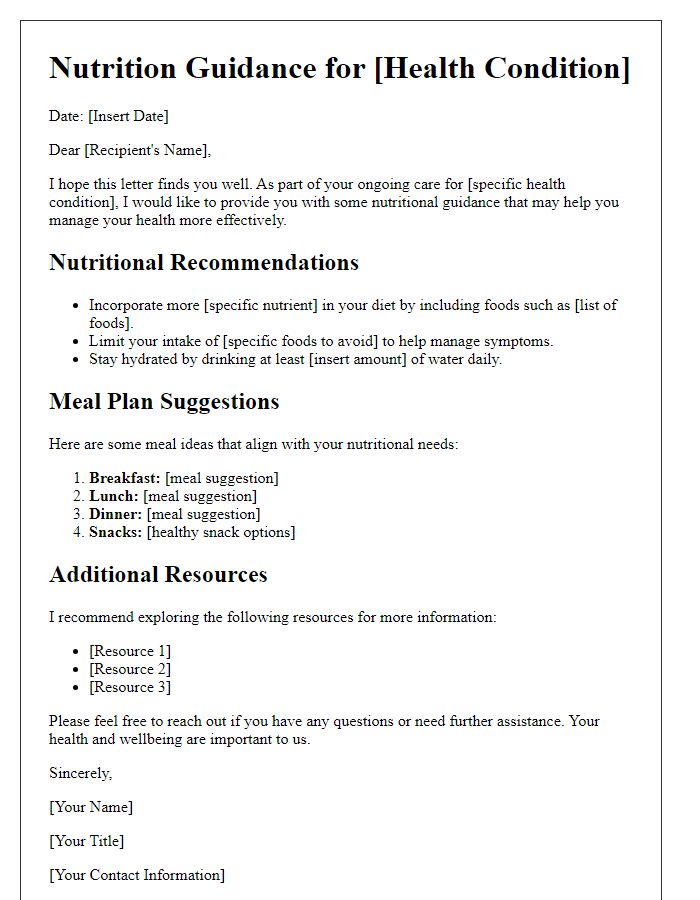
Letter template of dietary suggestions for weight management and fitness.
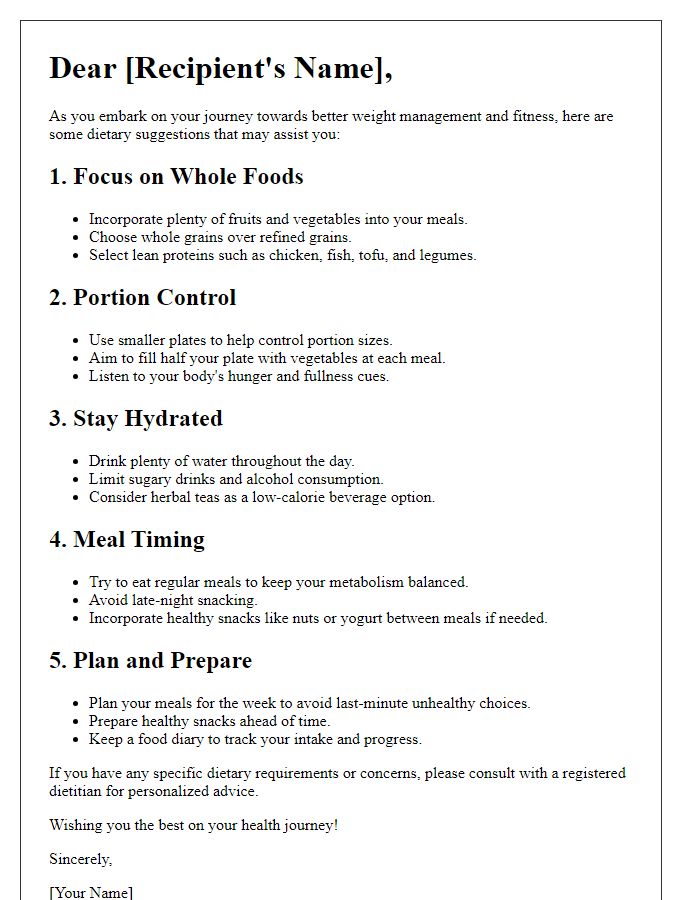
Letter template of vegetarian and vegan dietary guidance for health benefits.
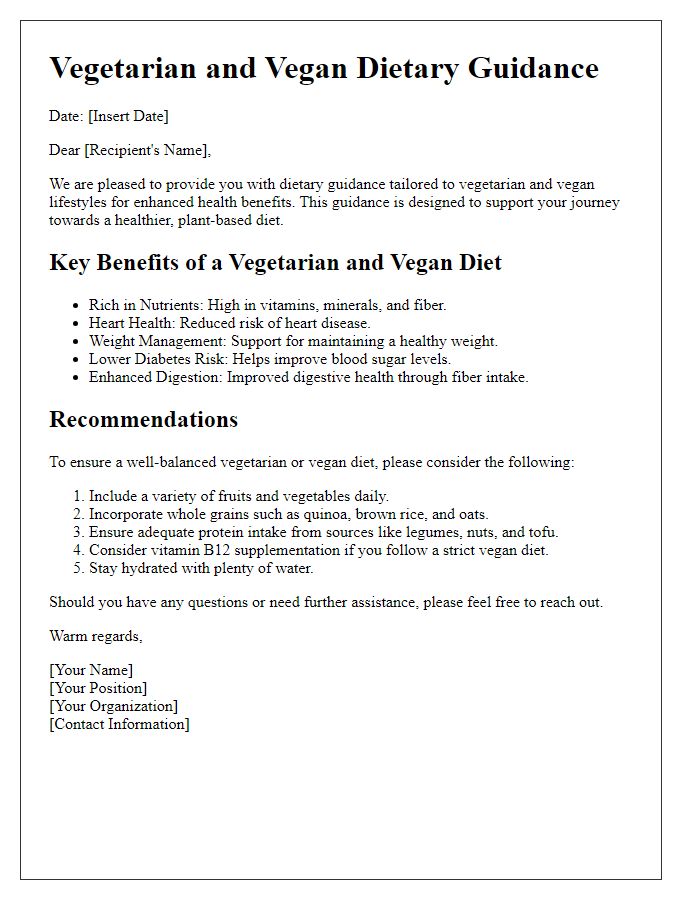
Letter template of lifestyle dietary changes for chronic disease management.
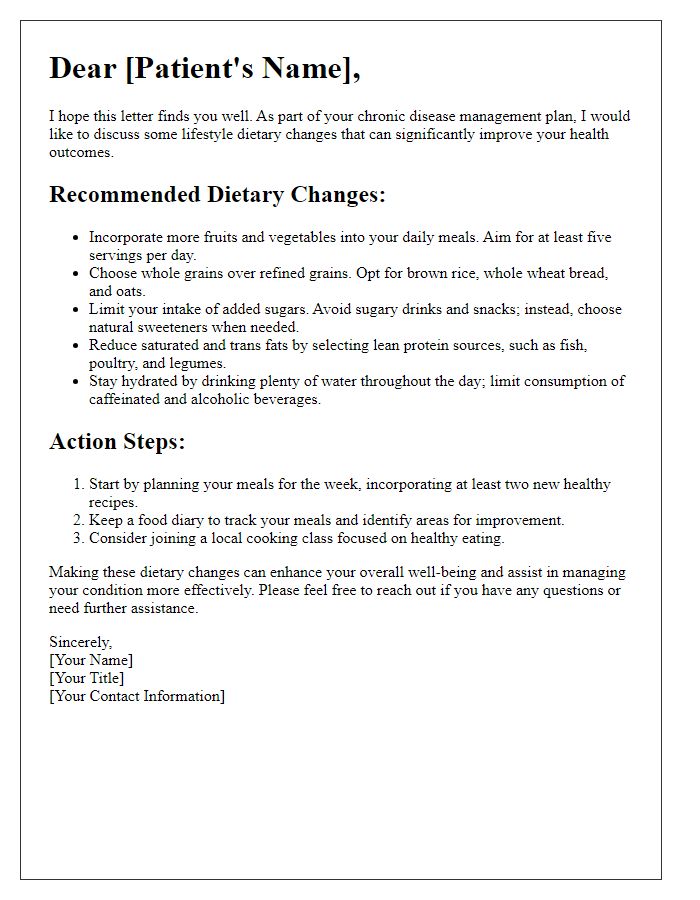

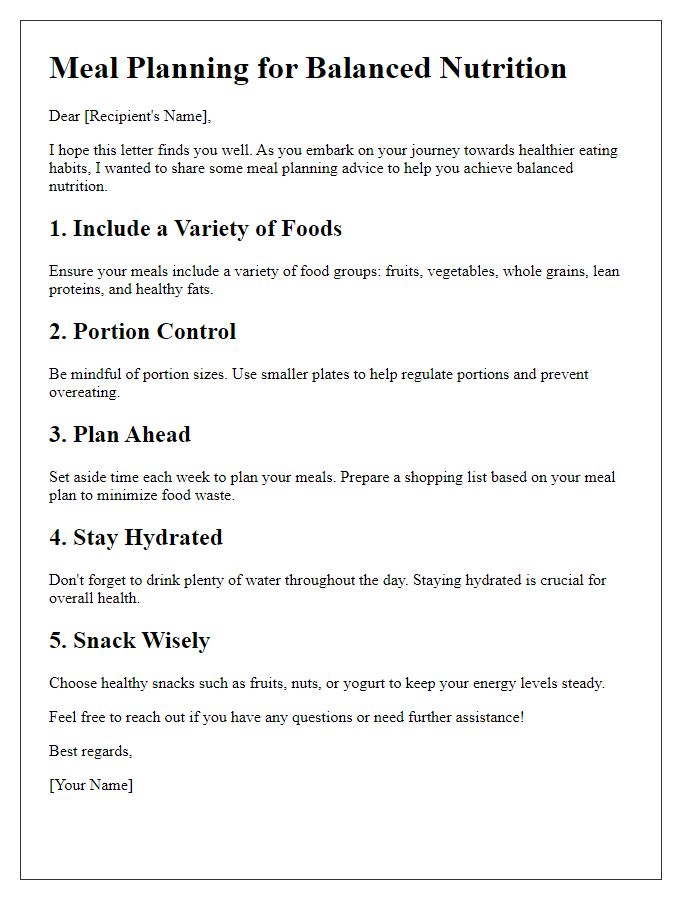
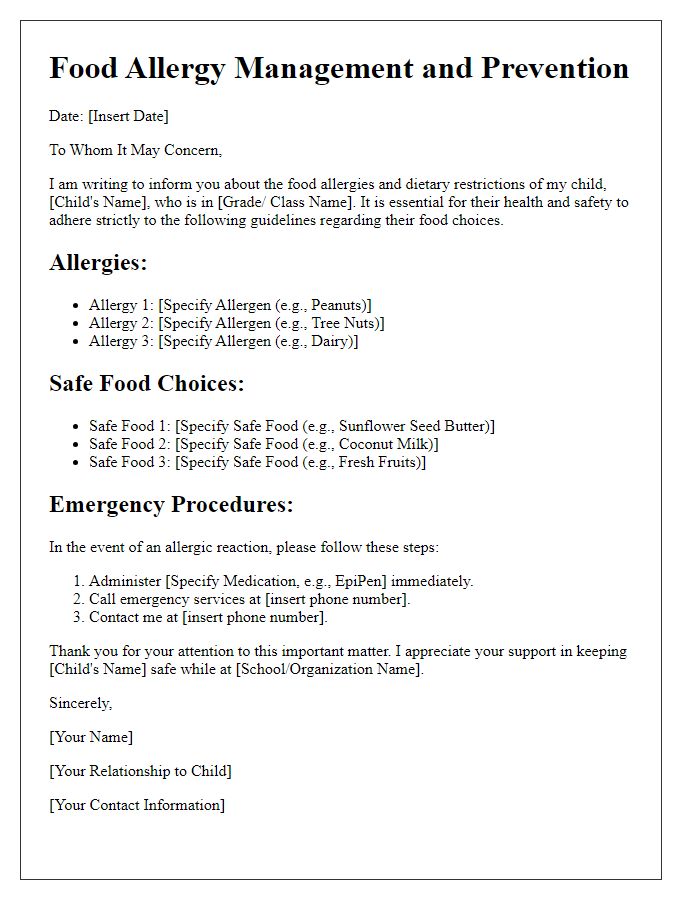
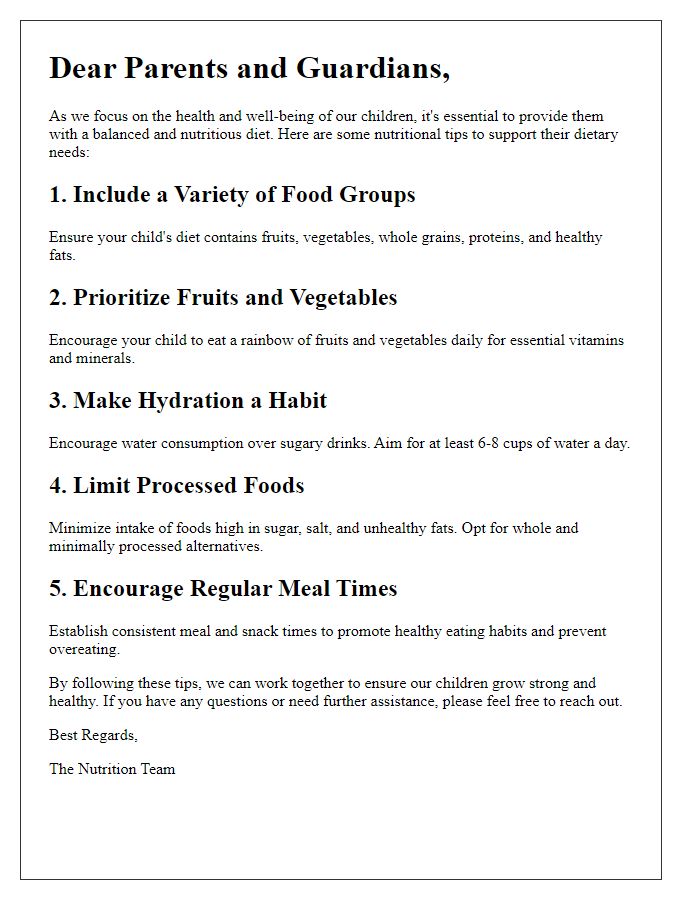
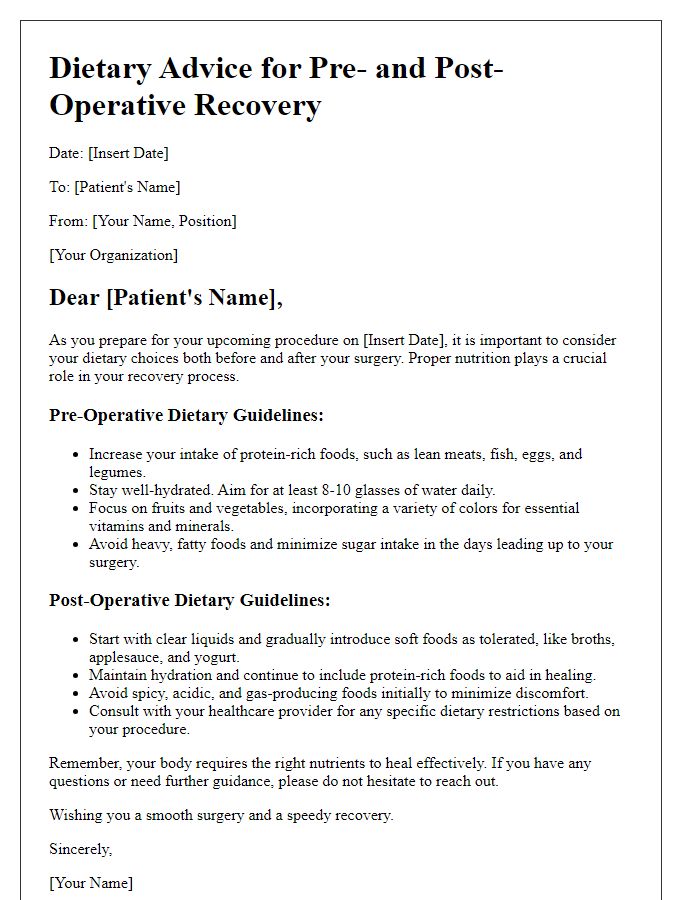
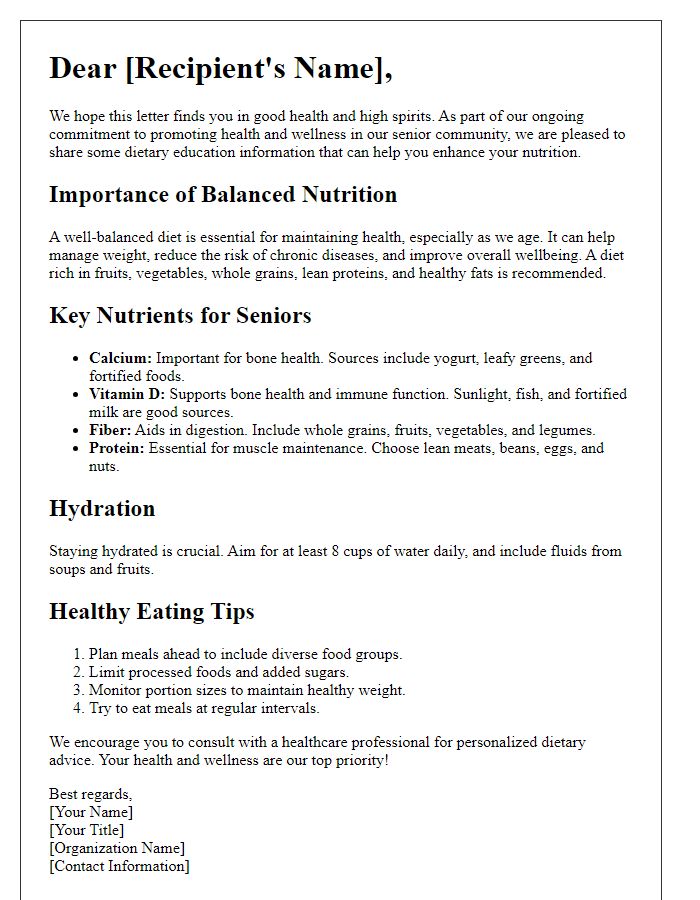


Comments